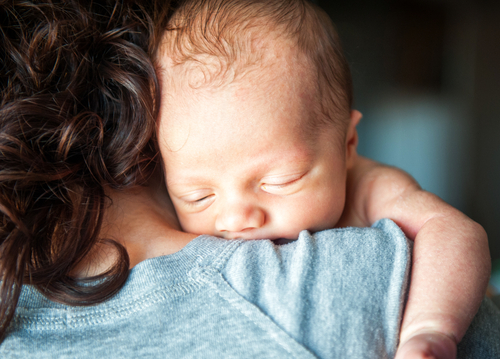A retrospective study investigated the safety of pregnancy after breast cancer in young women diagnosed with non-metastatic breast cancer. Data analysis shows that women who become pregnant after breast cancer diagnosis at an early age were not at a higher risk for cancer recurrence. For some patients, pregnancy even reduced the risk of death.
The study, “Safety of pregnancy in patients (pts) with history of estrogen receptor positive (ER+) breast cancer (BC): Long-term follow-up analysis from a multicenter study,” was presented recently at the American Society of Clinical Oncology (ASCO) 2017 Annual Meeting.
The study followed up 1,207 breast cancer patients, all under 50 years old and diagnosed before 2008, for a median of 10 years. During this period, no differences in disease-free survival were registered between women who became pregnant and those who did not, regardless of estrogen receptor tumor status, completion of pregnancy or abortion, time of conception after disease diagnosis, and breastfeeding.
“These data provide reassurance to breast cancer survivors that having a baby after a breast cancer diagnosis may not increase the chance of their cancer coming back. For many young women around the world who want to grow and expand their families, it’s very comforting news,” Erica L. Mayer, MD, MPH, said in a press release.
A particular concern of breast cancer recurrence is raised for patients with estrogen receptor (ER)-positive tumors because this type of breast cancer is fueled by the hormone estrogen, of which levels increase during pregnancy. This could cause an unwanted growth of cancer cells that potentially remained in the body after treatment.
However, this study shows no differences in survival among ER-positive cancer participants that became pregnant, compared to those who did not. When it came to ER-negative cancer participants, a significant difference was found in the survival of participants. Pregnancy lowered the chances of dying by 42 percent in this group of survivors.
The study also pointed out that it took a median time of 2.4 years since diagnosis, for women who survived breast cancer to conceive, although women with ER-positive cancer, tended to achieve pregnancy later than the others.
Only 7 percent of participants with ER-negative disease were pregnant five years after diagnosis, while 23 percent of patients with ER-positive cancer only achieved pregnancy beyond five years of diagnosis.

